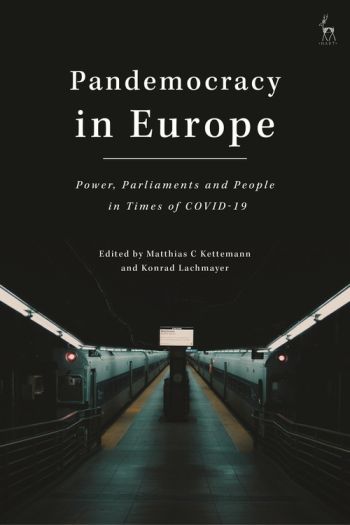
When European societies win the fight against COVID-19, a democratic reckoning will start. This book explains why.
Have democracies successfully mastered the challenges of the pandemic? How has the Corona virus impacted democratic principles, processes and values? At the heels of the worst public health crisis in living memory, this book shines an unforgiving light on the side-lining of parliaments, the ruling by governmental decrees and the disenfranchisement of the people in the name of fighting COVID-19.
Pandemocracy in Europe situates the dramatic impact of COVID-19, and the fight against the virus, on Europe's democracies. Throughout its 20 contributions the book sets the theoretical stage and answers the democratic questions engaged by health emergencies. Eight national case studies – UK, Germany, Italy, Sweden, Hungary, Switzerland, France and Estonia – show, each time with a pronounced focus on a particular element of democracy, how different states reacted to the pandemic. The book also shifts the analytical gaze beyond the nation state towards international settings, looking at the effects on the European Union and considering the impact on the nationalistic and populist movements.
Bridging disciplines and uniting a stellar cast of scholars on democracy, rule of law and constitutionalism, the book provides contours and nuances to a year of debates in political science, international relations and law on the impact of the virus on democracies.
In times of uncertainty, Pandemocracy in Europe provides analysis and answers to the democratic challenges of the coronavirus.